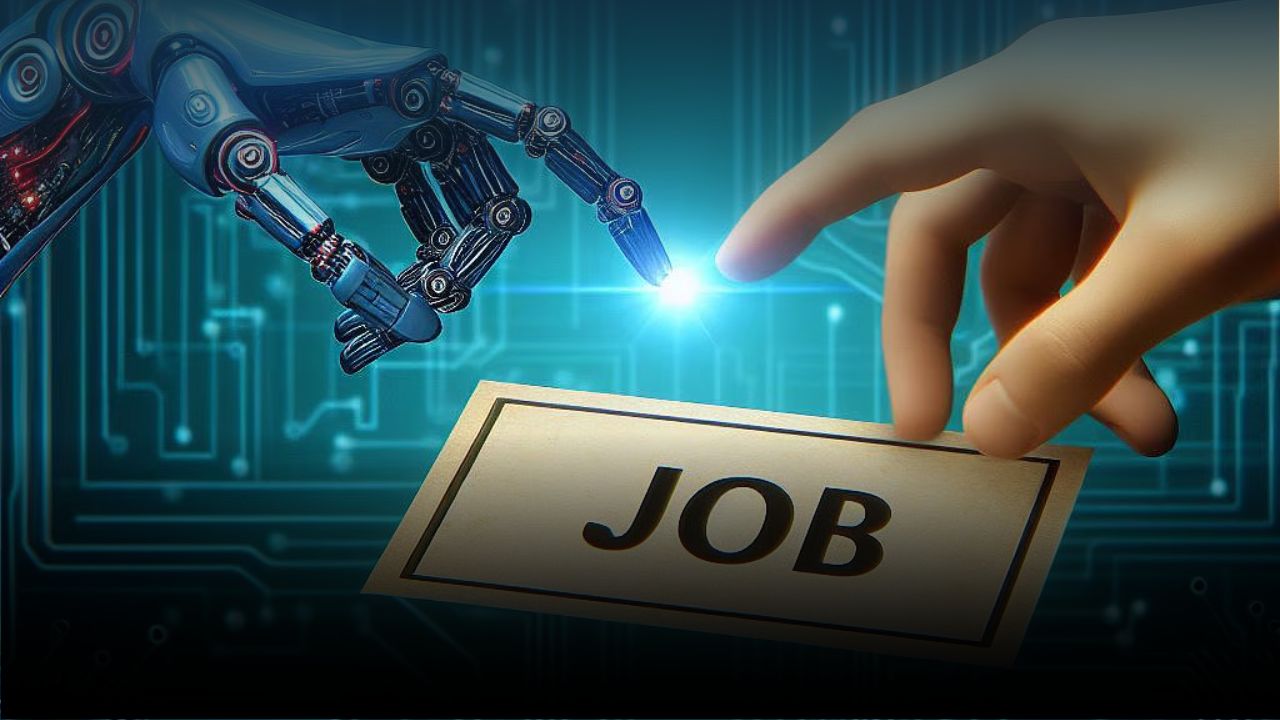
Lalit Garg
In a youthful and rapidly developing nation like India, technological advancement has always been met with enthusiasm. From Digital India to the booming startup ecosystem, and now Artificial Intelligence (AI), each wave of innovation has promised progress, prosperity, and possibilities. The assumption has long been that with technological transformation will come new employment opportunities and economic growth. However, recent developments in the Indian IT sector have raised pressing questions. Tata Consultancy Services (TCS), one of the country’s most prominent IT firms, recently announced the layoff of over 12,000 employees. This decision has jolted the industry and shaken public trust, especially because the company attributed these layoffs to a mismatch in required skills and evolving business models—not to AI-driven efficiency gains. Yet, the timing and scale of this move point unmistakably to the deepening impact of AI on the job market.
AI and automation are no longer futuristic concepts—they are reshaping industries, businesses, and job roles at an unprecedented pace. According to various global reports, the primary driver of current and future layoffs is not a financial crisis but technological displacement. Consider Amazon, which upgraded 30,000 software applications in just six months using AI—an effort that would have taken human developers an entire year. This automation saved the company $250 million. Similarly, Microsoft and Meta report that 20–50% of their coding tasks are now performed by AI tools. These numbers underscore a broader global trend: repetitive, rule-based jobs are being rapidly replaced by smart technologies.
Though AI adoption in India currently trails behind the US and Europe, the pace is accelerating. A report highlights that in just the first five months of 2025, more than 3,600 employees were laid off in India’s startup and IT sectors, with AI-enabled cost-cutting being a primary driver. This shift suggests that automation isn't just augmenting human work; in many cases, it’s replacing it.
TCS’s decision is both significant and symbolic. Although it affects around 2% of its workforce—mainly mid and senior-level professionals—it sends a clear message: businesses are restructuring to align with a future where AI drives productivity. Despite reassurances from company executives that these layoffs are not due to AI, the subtext tells a different story. The company is pivoting toward AI integration, entering new markets, revamping its workforce models, and enhancing client experiences—all of which indirectly reduce the need for traditional roles. This strategic pivot might make business sense. But for the thousands whose livelihoods are impacted, and for millions more preparing for careers in IT, the consequences are real and disheartening.
India’s youth is pouring into technical education, particularly in software engineering, computer science, and data science, in hopes of landing well-paying jobs in the tech industry. But when major companies like TCS initiate mass layoffs, it signals a crisis of alignment between educational aspirations and job realities. The employment landscape is becoming increasingly skewed. Even as enrollment in IT programs surges, job opportunities are shrinking—at least in their traditional form. The results are visible on the ground. In one recent public sector exam in Haryana, millions of youth applied for a handful of jobs, highlighting the desperation and intensity of the unemployment crisis.
Global assessments are mixed but concerning. A Goldman Sachs report estimates that 300 million jobs worldwide could be impacted by AI and automation. The World Economic Forum projects that by 2030, 92 million jobs will disappear—but also that 170 million new roles could be created. This dichotomy underscores a critical truth: AI is not just destroying jobs; it is transforming them. Those who adapt may thrive; those who don’t risk being left behind. In India, studies suggest that between 12 to 18 million jobs could be disrupted by 2025, especially in IT, BPO, and white-collar service sectors. According to leading Indian startups, nearly half of all white-collar jobs are vulnerable. The middle class, which depends heavily on these roles, faces a growing threat to its economic stability.
One major reason for layoffs is the skill gap. Traditional degrees are no longer sufficient. The jobs of the future require dynamic, interdisciplinary knowledge in fields such as: Data Science and Analytics, Machine Learning and AI Ethics, Cloud Computing, Cyber security and Soft Skills: Critical Thinking, Empathy, and Creativity. The harsh truth is that most educational institutions haven’t adapted fast enough. They continue to produce graduates for yesterday’s jobs, not tomorrow’s.
Despite the AI wave, human capabilities remain irreplaceable in many fields. Professions like teaching, law, journalism, healthcare, and counseling rely on emotional intelligence, ethical judgment, and creativity—areas where machines lag far behind. Meta’s Chief AI Scientist, Yann LeCun, rightly observed that “AI can perform portions of tasks, not entire jobs—and certainly not to perfection.” Hence, AI should be viewed as a collaborator, not a replacement. To navigate this transition, three foundational pillars are essential: First Reskilling and Lifelong Learning-Equip the workforce with AI-complementary skills—data science, AI ethics, teamwork, critical thinking—beyond coding or technical training. Research suggests demand for such soft and digital skills is up to 50% larger than for AI-substitutable tasks. Second Policy Frameworks and Support- Government must bolster AI transition strategies with clear policies on digital inclusion, unemployment protection, and redeployment schemes for displaced workers. And third Cultural and Social Empowerment- AI adoption must be transparent and equitable. A new social compact is needed where benefits reach all stakeholders—not just large AI firms.
The TCS layoffs are more than a corporate HR decision—they are a wake-up call. The world is changing, and India must act now to harness AI for inclusive growth. We must reframe technology not as a threat, but as an opportunity to redefine work and dignity. In this AI-powered future, survival will depend not on resisting change, but on embracing it wisely. Continuous learning, ethical implementation, and human-centric design must guide our path forward. If India can balance innovation with inclusion, technology with training, and automation with empathy, it will not only survive this wave of change—it will lead it.